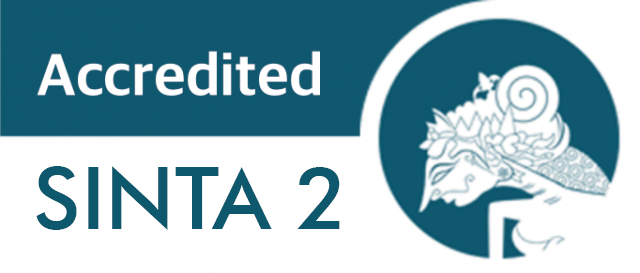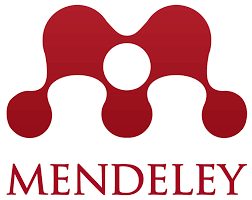Education Reward for Teacher: Implementation Strategy to Improve Teacher’ Performance
DOI:
https://doi.org/10.15408/tjems.v3i2.4390Keywords:
reward, teacher’ performance, creativity, innovation, competence, penghargaan, prestasi kerja, kreativitas, inovasi, kompetensiAbstract
Abstract
Reward for teacher became one of the ways to improve teachers’ performance for the development of national education. It is an appreciation for teachers based on merit or the excellent performance, given both individually and institutionally in the form of material or appreciation. A competent teachers have the ability, skill, and attitude of work in accordance with established standards. The purposed of this study is to analyze the effect of reward on teachers in creating performance through the optimization of creativity, innovation development and competence. The data were analyzed through triangulation model of transformation that combines qualitative and quantitative methods. The findings indicate that teachers’ reward model that able to create performance through increasing the creativity, innovation, and competence. Furthermore, this study is expected to build awareness of the ministry of education in improving the quality of national education systems including the expansion of rewards for teachers who have great working performance in creativity, innovation and competence.
Abstrak
Penghargaan bagi guru menjadi salah satu tuntutan dalam upaya peningkatan prestasi kerja untuk pengembangan kualitas pendidikan nasional. Penghargaan guru merupakan bentuk apresiasi terhadap guru berdasarkan prestasi atau kinerja unggul yang diberikan baik perorangan maupun lembaga dalam bentuk materil maupun lisan. Guru yang kompeten memiliki kemampuan, ketrampilan maupun sikap kerja sesuai dengan standar yang ditetapkan. Tujuan penelitian ini untuk menganalisis pengaruh penghargaan guru dalam rangka menciptakan prestasi kerja melalui optimalisasi kreativitas, pengembangan inovasi dan peningkatan kompetensi. Teknik analisis data menggunakan model triangulasi transformasi yang memadukan metode kualitatif dan kuantitatif. Temuan dalam penelitian ini mengintegrasikan model penghargaan guru yang mampu menciptakan prestasi kerja melalui upaya meningkatkan kreativitas, inovasi, dan kompetensi. Lebih lanjut, penelitian ini mengharapkan kementerian pendidikan nasional lebih berperan aktif dalam meningkatkan kualitas sistem pendidikan nasional diantaranya melalui perluasan pemberian penghargaan bagi guru yang memiliki keunggulan dalam kreativitas, inovasi dan kompetensi.
How to Cite : Sarjana, S. Khayati, N. Warini, L. (2016). Education Reward for Teacher: Implementation Strategy to Improve Teacher’ Performance. TARBIYA: Journal of Education in Muslim Society, 3(2), 205-217. doi:10.15408/tjems.v3i2.4390.
Permalink/DOI: http://dx.doi.org/10.15408/tjems.v3i2.4390
References
Acton, A. (2013). Issues in Business, Occupational, and Creative Psychology. Georgia: Scholarly Editions.
Afuah, A. (2009). Strategic Innovation, New Game strategies for Competitive Advatage. New York Routledge.
Alamsyah, T. (2015). Tunjangan Profesi Guru Akan Diberikan Sesuai Capaian Prestasi. Diakses 29 September 2015 dari http://kemdikbud.go.id/kemdikbud/node/4320
Armstrong, M. (2012). Armstrong’s Handbook of Reward Management Practice: Improving Performance through Reward, 4th Edition. London: Kogan Page.
Babatunde, T. (2013). Reward: A Biblical Perspective. Texas: Trendy Publishing.
Bandur, A. (2014), Penelitian Kualitatif : Metodologi, Desain & Teknik Analisis Data Dengan NVIVO 10, Mitra Wacana Media, Jakarta.
Bennett, W., Lence, C. E., & Woehr, D. J. (2006). Performance Measurement: Current Perspective and Future Challenges. New York: Routledge.
Bessant, S. & Tidd, J. (2011). Innovation and Intrepeneurship. West Sussex : John Wiley & Son.
Beule & Nauwelaerts. (2013). Innovation and Creativity, Pillar of the Future Global Economy. New York : Edward Elgar Publishing Limited.
Bukvić, Z. (2014). Teacher Competency for Inclusive Education. The European Journal of Social and Behavioural Sciences, eISSN: 2301-2811, pp. 1585-1590.
Burke, C. (2007). Inspiring spaces: creating creative classrooms. Curriculum Briefing, 5 (2), 35-39.
Chaudhary, P. (2014). A Study over Expectancy Theory of Motivation in Small Scale Industries in NCR. International Journal of Research & Development in Technology and Management Science, Vol. 21.
Cook, P. (1998). The Creativity Advantage, Is Your Organization The Leader of The Park?. Journal Industrial and Commercial Training, 30 (5).
Crick, D. R. (2008). Pedagogy for citizenship. In F. Oser & W. Veugelers (Eds.), Getting involved: Global citizenship development and sources of moral values. Rotterdam: Sense Publishers.
Divsalar, H., & Soleymanpour, J. (2014). The Relationship of Global Citizenship Issues and Organizational Creativity of Humanities Teacher in High School of Mazandaran Province. Kuwait Chapter of Arabian Journal of Business and Management Review, 3 (7), 141-152.
Duin, P. (2006). Qualitative Futures Research for Innovation. Amsterdam: Eburon Academic Publishers.
Fleith, D. (2000). Teacher and student perceptions of creativity in the classroom environment. Roeper Rev. 22 (3), 148-154.
Gibson, Ivancevich, Donnely, & Konopaske. (2006). Organizations Behavior Structure. New York: Mc-GrawHill.
Griffin, R. W., & Moorhead, G. (2014). Organizational Behavior, Managing People and Organizations. Canada: South Western, Cengage Learning.
Hema Malini, P. H., and Washington, A. (2014). Enjoyment the expected and valued reward ultimately leads to good quality of work life Employees’ Motivation and Valued Rewards as a Key to Effective QWL- from the Perspective of Expectancy Theory. TSM Business Review, 2 (2), 45-54.
Jeschke & Hees. (2013). Automation, Communication and Cybernetics in Science and Engineering. Berlin: Springer Verlag.
Jex, S. M. Organizational Psychology: A Scientist-Practitioner Approach. New York: John Wiley & Sons.
Joo, H., Lee, S., & Jung, S. (2012). Performance-Based Reward for Teacher: Teachers Perceptions of Their Motivation. Research in Higher Education Journal.
Kusumah, W. 2009. Menjadi Guru Kreatif Melalui Karya Tulis Ilmiah. Diunduh 29 Maret 2015 dari http://wijayalabs.com/2009/04/20/menjadi-guru-kreatif-melalui-karya-tulis-ilmiah
Lee, L. Y., & Tan, E. (2012). The Influences of Antecedents o Employee Creativity and Employee Performance: A Meta Analytic Review. Interdisciplinary Journal of Contemporary Research in Business, 4 (2).
Ljubetić, M., & Vranješ, K. V. (2008). Pedagogical (in) competence of teachers. Educational science, 10 (1), 209-230.
Luthan, F. (2011). Organizational Behavior: An Evidence-Based Approach, Twelft Edition. New York: McGraw-Hill.
Martin. (2008). Creativity: Ethics and Excellence in Science. Lanham: Rowman & Littlefield Publishing Group.
Mullins, L. (2005). Management and Organizational Behavior, Seventh Edition. London : Prentice Hall.
Mumford, M. (2012). Handbook of Organizational Creativity. Oxford : Elsevier.
Munthe, A. P. (2013). Guru Bersertifikat Minus Prestasi. Diunduh 29 September 2015 dari http://www.kabarindonesia.com /beritaprint.php
Okpara, F. (2007). The Value of Creativity and Innovation in Intrepreneurship. Journal of Asia Entrepreneurship and Sustainability, III (2).
Ospanova, B. A., Redlikh S. M., Sagdullaev I. I., Tashbulatova A. E., Abdulhakov A. B., & Dadashov D. T. (2015). Methods of Developing of the Prospective Teacher’s Creativity. Asian Social Science, 11 (13), 310-315. ISSN 1911-2017 E-ISSN 1911-2025.
Ozkal, N. (2014). Relationships between teachers’ creativity fostering behaviors and their self-efficacy beliefs. Educational Research and Reviews. 9 (18), 724-733.
Pitsis, Simpson & Dehlin. (2012). Handbook of Organizational and Managerial Innovation, Massachussets: Edward Elgar Publishing, Inc.
Požarnik, B. M., & Lavrič, A. (2015). Fostering the Quality of Teaching and Learning by Developing the “Neglected Half” of University Teachers’ Competencies. CEPS Journal, 5 (2), 73-93.
Robins, S. P., & Judge, T. A. (2013). Organizational Behavior, Fifteenth Edition. New Jersey: Pearson Education Inc.
Rose, M. (2014). Reward Management. London: Kogan Page Limited
Rowland, C., & Hall, R. (2014). Management Learning, Performance and Reward: Theory and Practice Revisited. Journal of Management Development. 33 (4), 342-356.
Runco, M. (2007). Creativity, Theories and Themes: Research, Development, and Practice. Oxford: Elsevier.
Sattler, M. (2011). Excellence in Innovation Management: A Meta-Analytic Review on the Predictors of Innovation Performance. Germany: Gabler Verlag.
Schermerhorn, J. R., Hunt, J., & Osborn, R. N. (2010). Organizational Behavior. New York: John Wiley.
Sirait, J. T. (2006). Memahami Aspek-Aspek Pengelolaan Sumber Daya Manusia Dalam Organisasi. Jakarta: PT Grasindo.
Stamm, B. (2008). Managing Innovation, Design and Creativity, 2nd Edition. West Sussex: John Wiley & Sons.
Suud, M. (2012). Guru Diharapkan Lebih Inovatif Dalam Mengajar. Diakses 29 September 2015 dari http://edukasi.kompas.com/read/2012/03/21/12313075/Guru.Diharapkan.Lebih.Inovatif.dalam.Mengajar
Tomlinson, H. (2000). Proposals for Performance Related Pay in English Schools, School Leadership and Management, 20 (3), 281-298.
Tripathy, K. (2006). Study on the Work life of BPO Employees and the Various Human Resource Practices in a BPO - A Case Study of Convergys. Online website: http://www.indianmba.com/Faculty_Column/FC391/fc391.html
Undang-Undang Republik Indonesia No. 14 Tahun 2005 Tentang Guru dan Dosen.
Uzonna, U. R. (2013). Impact of motivation on employees’ performance: A case study of Credit West Bank Cyprus, Journal of Economics and International Finance, 5 (5), 199-211.
Weinert, F. E. (2001). Concept of Competence: A Conceptual Clarification
White & Bruton. (2011). The Management of Technology and Innovation: A Strategic Approach. South Western: Cengage Learning.











